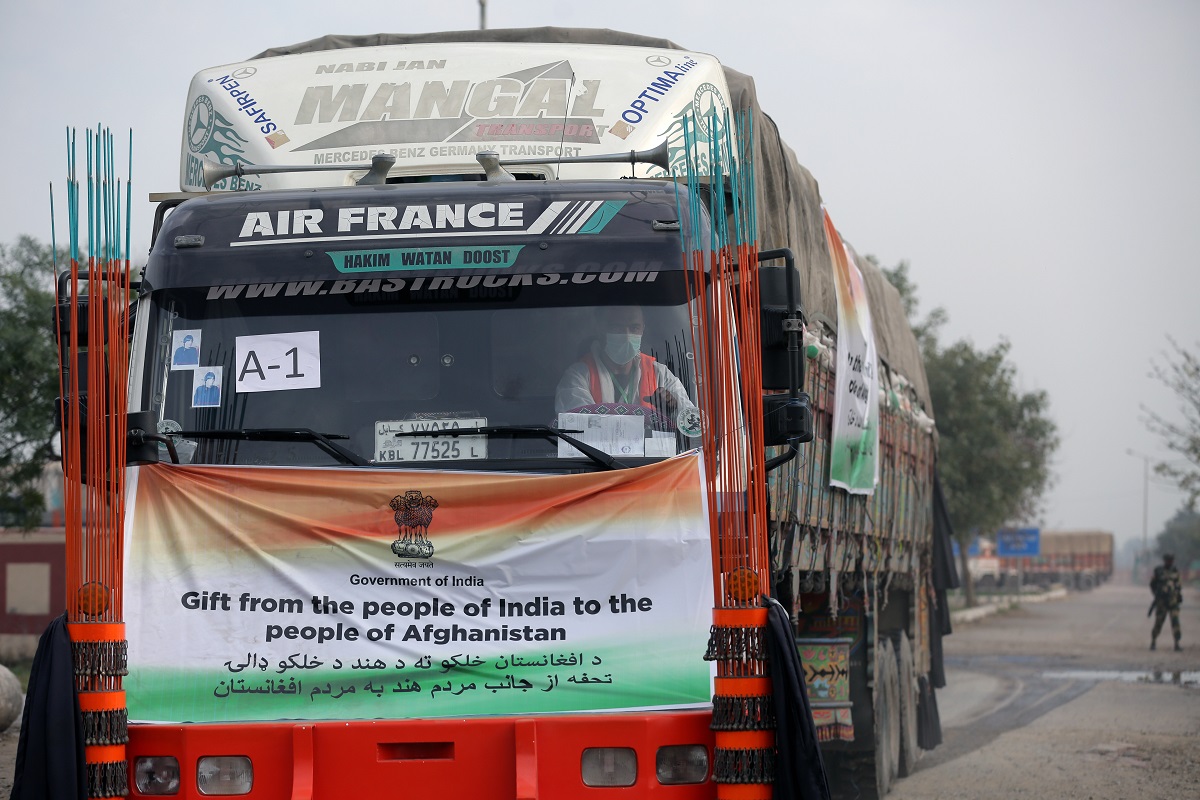UPSC 2023 countdown has begun! Get your personal guidance plan now! (Click here)

Context
- For the first time since the Taliban takeover on 15 August 2021, India has sent an official delegation to Afghanistan.
- India discussed a host of issues that included resumption of stalled infrastructure projects, activation of diplomatic ties, and restarting the issue of visas for Afghan students and patients.
Points of Discussion
- Has India officially recognized the Talibans?
- Tashkent held recently meet excluded Pakistan. Is Pakistan out of the Afghan security scenario?
Highlights of the discussion
- With this, it appears that the Indian is now less divided about the need to engage formally with the Taliban and prevent Afghan people getting marginalised.
- Afghanistan is vital to India’s strategic interests in the region where the people’s (and even Taliban’s) affection for India is legendary.
Expected outcomes of the meet
- Recognition of the Taliban government is not on the cards yet.
- The visit may have paved the way for the reopening of the Indian embassy, albeit a downgraded one.
India and Taliban: A quick timeline of engagement

- Initial reluctance: From 1996 to now, India’s journey from first opposition, then diffidence to engaging with the Taliban is in no small measure a story of India’s problematic relationship with Pakistan.
- Beginning of Kashmir Insurgency: In 1996, when the Taliban fought their way through warring mujahideen factions into Kabul for the first time, in India, fearing a spillover on Kashmir insurgency (there was indeed some).
- 1999 hijacking: During the hijacking of IC814, when the Pakistani hijackers took the plane to Kandahar, the then ruling Taliban acted as a support arm of the hijackers.
Since then, any engagement was a standstill.
When did India reach out to the Talibans?
- 9-11 terror attacks: After 9/11, under the US umbrella, India invested money and energy into the rebuilding of Afghanistan.
- But by 2010, with increasing doubts about the US continuance, India was again considering reaching out to the Taliban.
- New Delhi did not want to be left out or marginalised in the Afghanistan of the future.
- After the execution of Osama bin Laden in Pakistan in 2011, the Obama Administration was getting ready to declare an end to the war.
Since then, the way was paved for the talks.
How did its neighbors capitalize on the Afghan Crisis?
- Pakistan had delivered the Taliban to the Trump Administration for talks.
- Russia was backing the Taliban fully as the future ruler of Afghanistan, seeing in this sweet revenge for its own defeat in Afghanistan by US-financed, Pakistan-trained mujahideen.
- Iran was also glad at America’s defeat at the hands of the Taliban.
- China leveraged its relationship with Pakistan to get a foot into Kabul.
India’s considerations: Counter-intuitive timing

- Radicalism: India’s cautious opening to the Taliban has come at a time when the group has made it clear it has not changed from its previous satanical radicalism.
- Restrictions on women: This has increased, from not being allowed to attend school to curbs on free movement in public spaces and at work.
- Patronage to terror outfits: Taliban continues to remain close to Al-Qaeda, with a significant presence of its multinational fighting force in Afghanistan.
- Threats in Kashmir: They also flag the JeM and LeT training camps in Nangarhar and Kumar, close to the Pakistan border.
Why is India engaging with the Taliban now?

- Reducing Pakistan’s footprint: It is time to de-hyphenate Pakistan from the Taliban, especially as the Pakistan security establishment is finding the going tough with the Kabul regime.
- Inducing political insight: Another reason advanced for India’s change in policy is that the Taliban in power are more divided than they were as a fighting force.
- Averting another crisis: This situation may provide room for a layered political and diplomatic engagement with different actors.
- Eliminating terrorism: It has also helped that the Taliban have made no hostile statements on Kashmir since taking over in Kabul.
- Afghanistan impacts India’s security: It has, in the past, provided space to al Qaeda with which the Taliban had a special relationship. Afghanistan has an ISIS presence too.
- Humanitarian assistance: India aims at facilitating humanitarian assistance through international organizations, and paving the way for access to consular services.
- Protecting its investment: India built vital roads, dams, electricity transmission lines and substations, schools and hospitals, etc. Total assistance is now estimated to be worth well over $3 billion.
Way forward
- An engagement with the Taliban would at least give an opportunity to convey Indian concerns directly.
- The visit has encouraged those elements within the group who wish to open up its diplomatic choices.
- All in all, the sooner India establishes a permanent presence in Kabul the better for the pursuit of national interests in the external sphere.
- This is not an exercise in evangelism but the cold and undeterred pursuit of interests, which often requires supping with the devil — of course, with a long spoon.
UPSC 2023 countdown has begun! Get your personal guidance plan now! (Click here)
